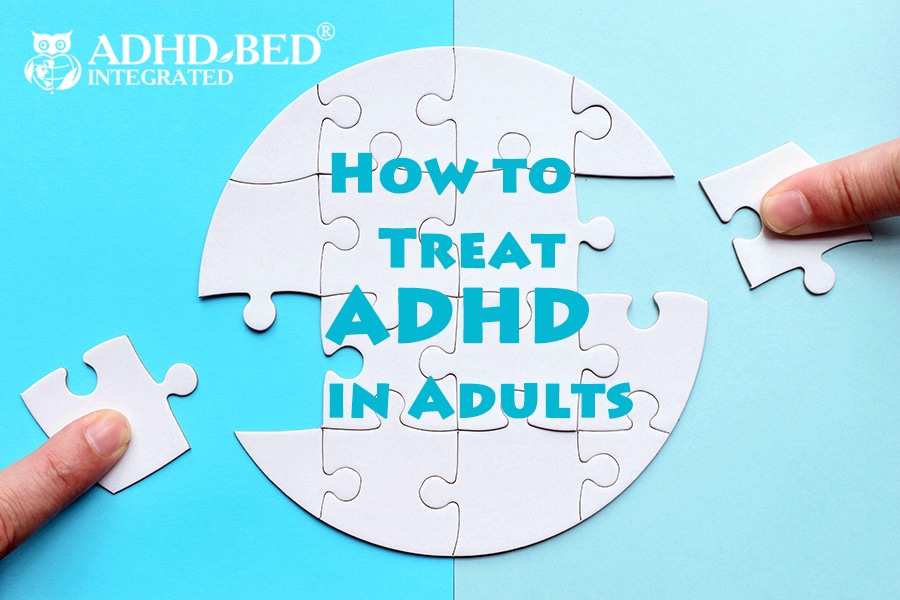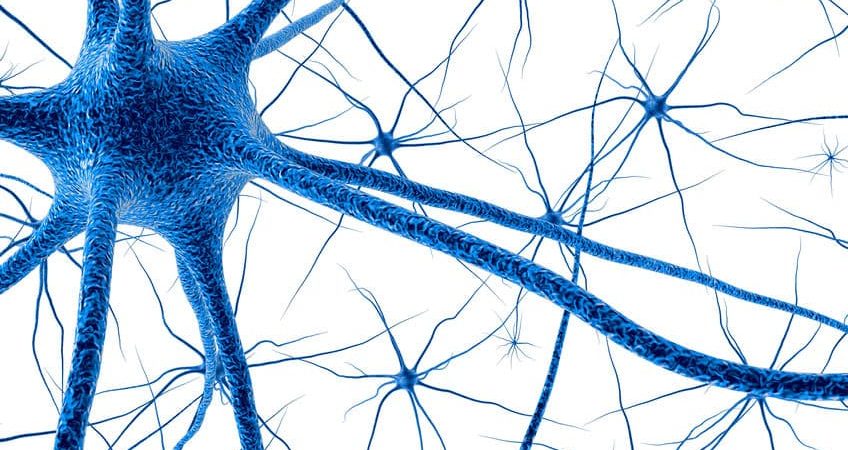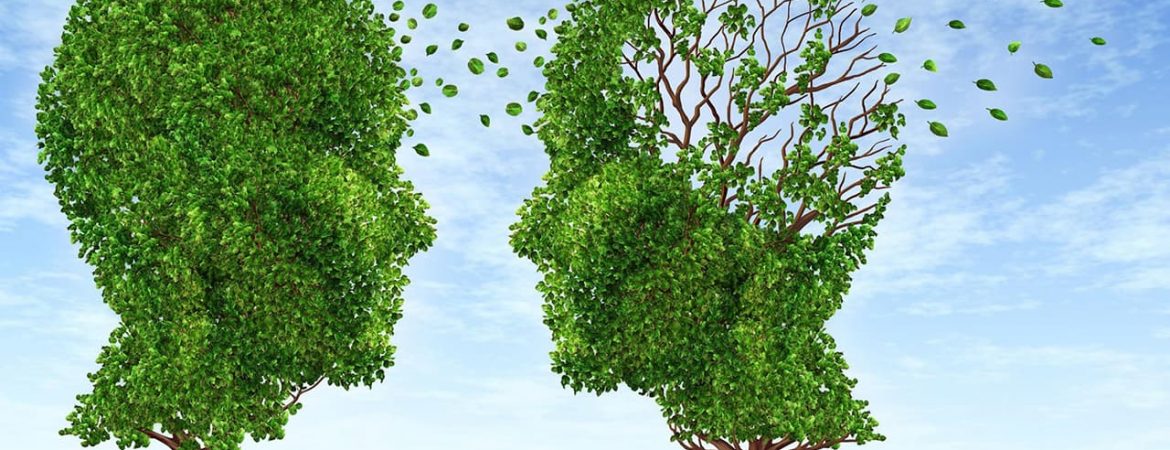Table of Contents
Introduction
Attention Deficit Hyperactivity Disorder (ADHD) is a developmental disorder characterised by symptoms of inattention, hyperactivity and impulsivity. Symptoms of ADHD typically begin in childhood and can manifest into adulthood. People with ADHD commonly have trouble with concentrating on a task, inhibiting impulsive and hyperactive behaviour and regulating emotions. If these symptoms persist into adulthood and become a lifelong condition, such difficulties can be disruptive in every day life and negatively affect a person’s relationship with the people around them. In order for patients of ADHD to lead a life of optimal quality, it is crucial to seek the right treatment that effectively alleviates their ADHD symptoms.
Common Symptoms of ADHD in Adults
ADHD manifests in 3 different types of symptom presentations. The Inattentive type presents with symptoms involving difficulties in paying attention, but is not hyperactive or impulsive. The Hyperactive/Impulsive type presents with symptoms involving hyperactive and impulsive behaviour, but does not struggle with attentiveness. Finally, the Combined type involves a combination of both inattentive and hyperactive/impulsive presentations of ADHD symptoms.
For adulthood specifically, the common symptoms of ADHD can detrimentally affect the adult’s personal and social relationships within both home and work settings. In adulthood, the expression of certain symptoms of ADHD in adults differs from those in the earlier years. While most symptoms remain the same, the intensity of these symptoms decrease. This is particularly so for hyperactive symptoms. Adults with ADHD can have difficulties with:
- Paying attention, particularly to details
- Concentrating for longer period of time
- Disorganisation
- Prioritisation
- Starting and completing tasks that require sustained effort
- Impulsiveness
- Emotional regulation
How to Treat ADHD in Adults
There are two main methods of treatment for ADHD in adults: pharmacological and non-pharmacological. Pharmacological treatment involves the use of stimulant medications to treat ADHD. Non-pharmacological treatment involves psychological interventions mainly targeted at behavioural management.
Evidently, every patient is different and each treatment method may vary in effectiveness depending on the patient’s unique circumstances. There are many options that patients and their providers can consider when formulating treatment plans. Ultimately, research evidence has shown that a combination of both pharmacological and non-pharmacological treatments is ultimately the most effective method of treatment.
ADHD Medication as a Treatment for Adult ADHD
Medication is the most common treatment option for ADHD, because it is very effective in alleviating symptoms of ADHD. The most widely researched treatment method – medications remain a safe and effective way to treat ADHD.
Stimulant Medications
The two most common medications used to treat ADHD are methylphenidate and dexamphetamine, both of which are stimulant medications. Stimulant medications work by targeting the areas of the brain that release dopamine, a chemical (i.e., neurotransmitter) known to be abnormally low in levels within ADHD patients. Essentially, medications act on the neurons of the brain to increase dopamine levels.
Upon starting stimulant medications, most adults with ADHD have reported positive outcomes, with improved attentional and emotional control, better concentration and an overall reduction in the severity of their ADHD symptoms. However, other patients do not have similar pleasant experiences due to the side effects that may arise from using stimulant medications. These side effects may include a decreased appetite, difficulties sleeping, irritability and headaches.
Common brands of stimulant medications include Concerta, Ritalin and Vyvanse. They can be prescribed by a psychiatrist or general practitioner.
Psychological Treatments for ADHD
Cognitive Behavioural Therapy (CBT)
Cognitive Behavioural Therapy (CBT) is a popular form of treatment for ADHD, due to its proven effectiveness in research. CBT as an intervention involves the reconstruction of a person’s cognitive beliefs, particularly negative or maladaptive thoughts that may lead to anxiety or distress.
Typically, CBT can be administered by a licensed mental health professional like a therapist or psychologist, and can occur either within a one-to-one or a group setting. The process of CBT involves active participation from the patient, as the mental health professional guides them through tasks like identifying negative beliefs, setting goals, establishing coping strategies and building skills like problem solving and interpersonal communication. Specific to adult ADHD, the patient may additionally work on their attentional skills, organisation, time management and emotional regulation.
Mindfulness
Mindfulness is the therapeutic practice of focusing on the moment at present, and involves the processes of acceptance and compassion towards the self through meditation techniques. Examples of mindfulness-based interventions include meditation, yoga and breathing techniques.
For ADHD, mindfulness-based interventions have shown to be effective towards improving the core symptoms of ADHD such as attentional control and emotional dysregulation.
Most studies on the effectiveness of mindfulness as a treatment for ADHD have promoted mindfulness as a supplement to primary treatments like medication or CBT.
Dialectical Behavioural Therapy (DBT)
Dialectical Behavioural Therapy (DBT) can be viewed as the combination of CBT and mindfulness techniques. It involves the standard structure of CBT combined with the core processes of mindfulness such as self-acceptance and compassion. DBT has been used to target emotional dysregulation and improve interpersonal relationships amongst patients who have undergone the treatment.
DBT is also carried out by a licensed mental health professional like a therapist or psychologist, either within a one-to-one or a group setting.
For adults with ADHD, DBT has been established as an effective method in treating the ADHD symptoms of emotional dysregulation
ADHD Coaching
ADHD coaching is a relatively new method of treatment that has become more recognized in the last few years, particularly for young and older adults with ADHD.
ADHD coaching involves the goal oriented management of the main functional impairments of ADHD such as organisation, goal-setting, time management and problem-solving. Coaches mainly aim to guide and support their clients in the process of setting and achieving their personal goals. Specific to each patient’s personal needs, coaches help ADHD patients identify their goals and the specific strategies that they may employ to achieve those goals.
ADHD coaches also provide the motivational support that their clients may need to overcome these functional impairments and grow into the potential of their capabilities.
Other ADHD Treatment Options for Adults
Diet
In adult ADHD, dietary factors may play an important role as studies have shown that eating junk food (i.e., foods high in fat and sugar) have been associated with an increase in the severity and frequency of the symptoms of ADHD. Furthermore, a regular and healthy diet is particularly important for patients with ADHD as Binge Eating is a common comorbid symptom of ADHD.
However, it is important to note that there is not necessarily enough evidence to show that there is a lack of a specific nutrient which leads to ADHD. Rather, it is more about having regular meals with an overall well-balanced diet. Moreover, having a healthy diet is undoubtedly a general standard that should be adhered to by all, in order to have the best quality of life.
Psychoeducation
Psychoeducation is an ADHD intervention which aims to educate patients of ADHD on the important information about the disorder, such as the basics of the causes, signs, symptoms and treatment options of ADHD. Psychoeducation on ADHD can also involve providing ADHD patients with the tips and techniques that they can utilise to manage ADHD symptoms and improve skills on executive functioning and interpersonal communication. Psychoeducation is not limited to only ADHD patients, but can also be provided to their caretakers or loved ones, as they can better understand the condition and learn how they can provide support for the patient.
Psychoeducation typically occurs when the patient is provided with a diagnosis from their provider, such as a therapist or psychologist, and is educated about the potential symptoms, causes and future steps towards remediation.
Although the effectiveness of psychoeducation in treating adult ADHD requires more evidence in research, it is likely worth a try as it may increase the awareness and understanding of ADHD for patients and their loved ones, which in turn provides a more supportive environment for the ADHD patient to prosper.
The Importance of Sleep in ADHD Treatment
A common comorbid symptom of ADHD is the occurrence of sleep problems like sleep disturbances or insomnia. Evidently, the lack of sleep can be very detrimental towards a person’s physical and mental health, especially for adults living with ADHD.
Chronic sleep deprivation is associated with cognitive impairment. With the high comorbidity of ADHD and sleep disturbances, it is clear that improving the quality of sleep can aid in alleviating some ADHD symptoms stemming from cognitive deficits. This is why providers tend to treat sleep problems for adults with ADHD, on top of treatment of the ADHD itself. Melatonin is commonly prescribed alongside ADHD stimulant medications to improve the quality of sleep.
Regular Exercise for a Powerful Treatment of ADHD
Physical exercise, in the form of aerobic/cardiorespiratory fitness, has been demonstrated to be effective in improving the cognitive symptoms of ADHD, specifically with attention and processing speed. The mechanisms in which exercise can improve the treatment of ADHD have strong neurobiological underpinnings, specifically in relation to an increase in dopamine levels within the brain. This is the same neurobiological process in which stimulant medications effectively treat ADHD.
While regular exercise should be promoted to the general population for optimal health, it is highly recommended for people with ADHD due to the higher risk of ADHD patients experiencing having poorer health outcomes. As such, regular exercise is commonly promoted by ADHD researchers and providers as a supplementary intervention towards other primary treatments to ADHD.
Conclusions
Overall, there are many different types of methods that can be used to treat ADHD in adults. From stimulant medications to behavioural therapy, the accessibility and functionality of these ADHD treatments vary for all patients, depending on their different and unique circumstances. It is crucial that patients and their providers thoroughly discuss their options and formulate the best plan of action to ensure that the patient is well-cared for and has access to the most effective treatment possible.
FAQ
Does ADHD in adults need to be treated?
With ADHD being a childhood-onset neurodevelopmental disorder, some people with ADHD grow into adulthood still living with their ADHD symptoms. While the symptoms of ADHD in adulthood are typically less severe than in childhood, untreated ADHD can still be detrimental towards the patient’s physical, mental and social wellbeing. If a person with ADHD finds that their lives are being negatively impacted by the cognitive deficits resulting from ADHD, it is always recommended to seek help from a professional and get their ADHD adequately treated in order to improve their quality of life.
Does caffeine help ADHD?
Caffeine is the most popular stimulant “drug”, commonly present in coffee or tea. Similar to how ADHD stimulant medications increase the levels of certain chemicals within the brain, caffeine also stimulates the release of these specific chemicals. A common symptom of caffeine consumption is heightened concentration and alertness, which are symptoms that patients of ADHD are deficient of. In these ways, caffeine can help with ADHD. However, there is a lack of research evidence to substantially support this idea. Furthermore, there are many negative side effects to long-term caffeine consumption, such as headaches and sleep disturbances, which are not ideal for ADHD. Overall, it is best to first consult with a health professional before using caffeine as an ADHD treatment as the effects of caffeine can vary for different people.
How eating right can help you regulate ADHD symptoms?
A regular and healthy diet is often recommended by ADHD providers to their patients. This is because studies have shown that eating junk food (i.e., foods high in fat and sugar) is linked to an increased risk in the severity and frequency of the symptoms of ADHD. Thus, eating healthy and well-balanced meals at regular intervals can help regulate the symptoms of ADHD.
What triggers ADHD in adults?
ADHD does not typically begin in adulthood. Symptoms usually present in childhood, although for some people they may go unnoticed and undiagnosed. As such, ADHD cannot be triggered by any specific factor. In fact, there are currently no known causes of ADHD. Rather, studies have found that there are multiple risk factors that may increase the chances of a child developing ADHD. These risk factors include genetics and environmental risk factors like the consumption of drugs and alcohol during pregnancy and hostile early childhood experiences like familial conflict or poverty.
What will happen if ADHD is not treated?
If untreated, ADHD patients will lead a life of inattentiveness and impulsiveness, which can negatively impact their daily lives. For adults specifically, this could mean difficult workplace experiences and unfulfilling relationships with family, friends and peers. Moreover, having ADHD poses a high risk of developing other psychiatric conditions like depression, anxiety and alcohol use disorder. If left untreated, ADHD and its comorbidities will further complicate the symptoms of ADHD and make it even more difficult to resolve.
References
American Psychiatric Association. (2022). Diagnostic and statistical manual of mental disorders (5th ed., text rev.). doi.org/10.1176/appi.books.9780890425787
Anbarasan, D., Kitchin, M., & Adler, L. A. (2020). Screening for Adult ADHD. Current Psychiatry Reports, 22(12). doi:10.1007/s11920-020-01194-9
Fullen, T., Jones, S. L., Emerson, L. M., & Adamou, M. (2020). Psychological treatments in adult ADHD: a systematic review. Journal of Psychopathology and Behavioral Assessment, 42(3), 500-518. doi.org/10.1007/s10862-020-09794-8
Caye, A., Swanson, J. M., Coghill, D., & Rohde, L. A. (2018). Treatment strategies for ADHD: an evidence-based guide to select optimal treatment. Molecular Psychiatry. doi:10.1038/s41380-018-0116-3
Boland, H., DiSalvo, M., Fried, R., Woodworth, K. Y., Wilens, T., Faraone, S. V., & Biederman, J. (2020). A literature review and meta-analysis on the effects of ADHD medications on functional outcomes. Journal of Psychiatric Research, 123, 21-30. doi.org/10.1016/j.jpsychires.2020.01.006
Michielsen, M., Kleef, D., Bijlenga, D., Zwennes, C., Dijkhuizen, K., Smulders, J., … & Kooij, J. S. (2021). Response and side effects using stimulant medication in older adults with ADHD: an observational archive study. Journal of Attention Disorders, 25(12), 1712-1719. doi:10.1177/1087054720925884
Salvi, V., Migliarese, G., Venturi, V., Rossi, F., Torriero, S., Viganò, V., … & Mencacci, C. (2019). ADHD in adults: clinical subtypes and associated characteristics. Rivista di Psichiatria, 54(2), 84-89. doi.org/10.1708/3142.31249
Papanastasiou, G., Drigas, A. ., & Papanastasiou, P. . (2021). The association of diet quality and lifestyle factors in children and adults with ADHD: a systematic review and meta-analysis. Scientific Electronic Archives, 14(9). https://doi.org/10.36560/14920211441
Li, L., Taylor, M. J., Bälter, K., Kuja‐Halkola, R., Chen, Q., Hegvik, T. A., … & Larsson, H. (2020). Attention‐deficit/hyperactivity disorder symptoms and dietary habits in adulthood: A large population‐based twin study in Sweden. American Journal of Medical Genetics Part B: Neuropsychiatric Genetics, 183(8), 475-485. https://doi.org/10.1002/ajmg.b.32825
Hoxhaj, E., Sadohara, C., Borel, P., D’Amelio, R., Sobanski, E., Müller, H., … & Philipsen, A. (2018). Mindfulness vs psychoeducation in adult ADHD: a randomized controlled trial. European archives of psychiatry and clinical neuroscience, 268(4), 321-335. doi.org/10.1007/s00406-018-0868-4
Nimmo-Smith, V., Merwood, A., Hank, D., Brandling, J., Greenwood, R., Skinner, L., . . . Rai, D. (2020). Non-pharmacological interventions for adult ADHD: A systematic review. Psychological Medicine, 50(4), 529-541. doi:10.1017/S0033291720000069
Poissant, H., Moreno, A., Potvin, S., & Mendrek, A. (2020). A Meta-analysis of Mindfulness-Based Interventions in Adults with Attention-Deficit Hyperactivity Disorder: Impact on ADHD Symptoms, Depression, and Executive Functioning. Mindfulness, 11, 2669–2681. doi:10.1007/s12671-020-01458-8
Mitchell, J. T., McIntyre, E. M., English, J. S., Dennis, M. F., Beckham, J. C., & Kollins, S. H. (2017). A Pilot Trial of Mindfulness Meditation Training for ADHD in Adulthood: Impact on Core Symptoms, Executive Functioning, and Emotion Dysregulation. Journal of Attention Disorders, 21(13), 1105–1120. doi.org/10.1177/1087054713513328
Bijlenga, D., Vollebregt, M. A., Kooij, J. J. S., & Arns, M. (2019). The role of the circadian system in the etiology and pathophysiology of ADHD: time to redefine ADHD? ADHD Attention Deficit and Hyperactivity Disorders, 11(1), 5–19. doi:10.1007/s12402-018-0271-z
Surman, C.B.H. & Walsh, D.M. (2021). Managing Sleep in Adults with ADHD: From Science to Pragmatic Approaches. Brain Sci, 11, 1361. doi.org/10.3390/ brainsci11101361
Mehren, A., Özyurt, J., Lam, A. P., Brandes, M., Müller, H. H. O., Thiel, C. M., & Philipsen, A. (2019). Acute Effects of Aerobic Exercise on Executive Function and Attention in Adult Patients With ADHD. Frontiers in Psychiatry, 10. doi:10.3389/fpsyt.2019.00132



